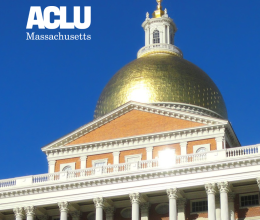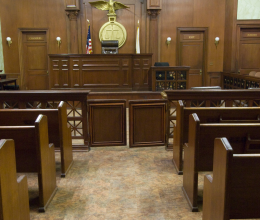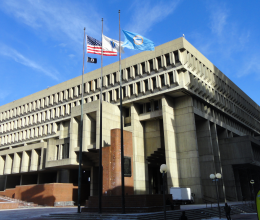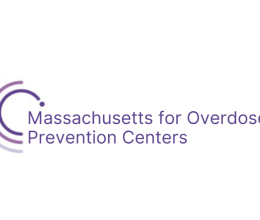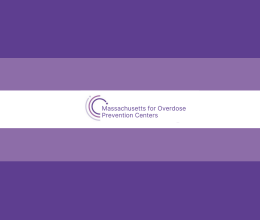
The Massachusetts Supreme Judicial Court today called on district attorneys to dismiss thousands of cases that were tainted by the misconduct of chemist Annie Dookhan at the Hinton state drug lab. The ruling came in a lawsuit, Bridgeman v. District Attorney, on behalf of three named petitioners and all other "Dookhan defendants," brought by the American Civil Liberties Union of Massachusetts, the national ACLU, the state public defender agency CPCS, and Fick & Marx LLP.
"Today's ruling is a major victory for justice, fairness, and tens of thousands of people in the Commonwealth who were wrongfully convicted of drug offenses," said Matthew Segal, legal director of the ACLU of Massachusetts. "The Court has called on prosecutors to dismiss the drug charges against most of the Dookhan defendants and to provide meaningful notice to the remaining defendants, all by fixed deadlines. It is now time for the DAs to step up and finally allow Massachusetts to turn the page on the worst drug lab scandal in our nation's history, especially because the Amherst drug lab scandal involving chemist Sonja Farak has called into question thousands more drug convictions."
The SJC ruling, authored by Chief Justice Gants, clarifies several things:
- Within 90 days, district attorneys must produce a list of all the previous drug convictions they plan to dismiss;
- Also within 90 days, district attorneys must produce a list of convictions that they wish to re-prosecute. DAs will be permitted to re-prosecute those cases only if they also certify that they have untainted evidence to proceed if the cases were to be re-tried;
- The financial and other burdens involved in this work, such as notifying defendants of their rights, rest with prosecutors. As the ruling states, "The failure of a district attorney to bear the district's proportionate share of these costs shall be deemed a failure to provide defendants with exculpatory information, with the sanctions appropriate to such a failure";
- Convictions still stand for defendants who pled guilty before tainted Dookhan drug evidence was used against them.
"Recognizing that nothing has been done, since 2012, in more than 20,000 cases arising from the Hinton drug lab scandal, the SJC has given prosecutors one last chance to do what they could have done, and should have done, years ago to clean up their mess: forego needless prosecutions, relieve wrongfully convicted people of the harsh, ongoing, collateral consequences of their tainted drug convictions, and, in the words of Justice Lenk, minimize the 'staggering human and financial costs,' of this scandal," said Daniel Marx of Fick & Marx LLP.
"It's now up to prosecutors to decide how much money and time our Commonwealth will spend to re-prosecute people suffering from addiction," said Carol Rose, executive director of the ACLU of Massachusetts. "Our district attorneys played a key role in this scandal and could have done years ago what the Court asked for today. We hope that they welcome this effort to see that justice is finally done. In the concluding words of Justice Hines, who would have adopted a more definitive global remedy, 'If not now, when?'"
For a detailed timeline of the Dookhan and Farak lab scandals, click here.
